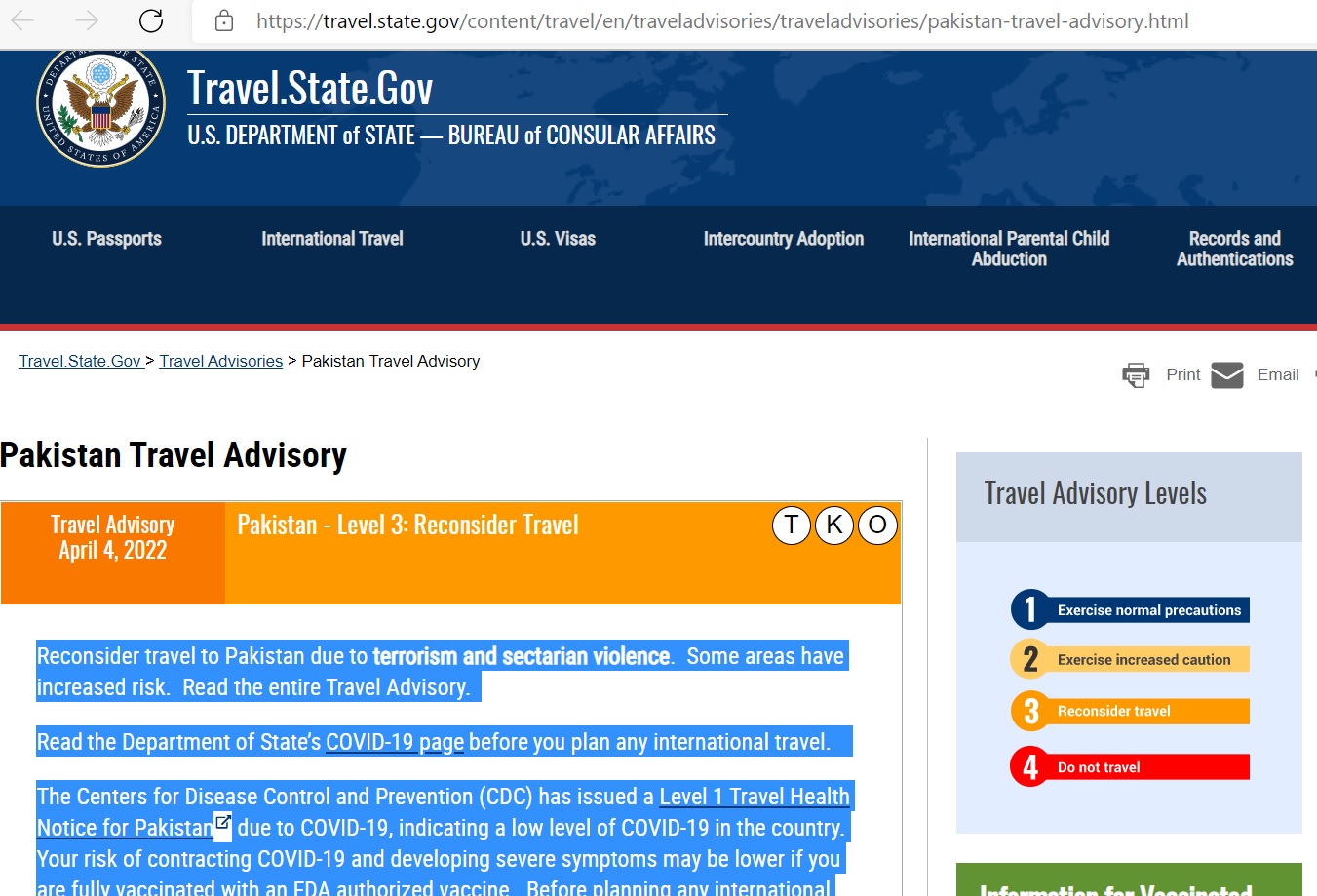Monitoring Desk: The Centers for Disease Control and Prevention (CDC) has issued a Level 1 Travel Health Notice for Pakistan due to COVID-19, indicating a low level of COVID-19 in the country.
Reconsider travel to Pakistan due to terrorism and sectarian violence. Some areas have increased risk. Read the entire Travel Advisory.
Read the Department of State’s COVID-19 page before you plan any international travel.
The Centers for Disease Control and Prevention (CDC) has issued a Level 1 Travel Health Notice for Pakistan due to COVID-19, indicating a low level of COVID-19 in the country. Your risk of contracting COVID-19 and developing severe symptoms may be lower if you are fully vaccinated with an FDA-authorized vaccine. Before planning any international travel, please review the CDC’s specific recommendations for vaccinated and unvaccinated travelers.
Visit the Embassy’s COVID-19 page for more information on COVID-19 and related restrictions and conditions in Pakistan.
Do not travel to:
Balochistan province and Khyber Pakhtunkhwa (KPK) province, including the former Federally Administered Tribal Areas (FATA), due to terrorism and kidnapping.
The immediate vicinity of the Line of Control due to terrorism and the potential for armed conflict.
Terrorist groups continue plotting attacks in Pakistan. A local history of terrorism and ongoing ideological aspirations of violence by extremist elements have led to indiscriminate attacks on civilian as well as local military and police targets. Terrorists may attack with little or no warning, targeting transportation hubs, markets, shopping malls, military installations, airports, universities, tourist locations, schools, hospitals, places of worship, and government facilities. Terrorists have targeted U.S. diplomats and diplomatic facilities in the past.
Terrorist attacks continue to happen across Pakistan, with most occurring in Balochistan and KPK, including the former FATA. Large-scale terrorist attacks have resulted in numerous casualties.
Pakistan’s security environment has improved since 2014 when Pakistani security forces undertook concerted counter terrorist and counter militant operations. There are greater security resources and infrastructure in the major cities, particularly Islamabad, and security forces in these areas may be more readily able to respond to an emergency compared to other areas of the country. While threats still exist, terrorist attacks are rare in Islamabad.
The U.S. government has limited ability to provide emergency services to U.S. citizens in Pakistan due to the security environment. Travel by U.S. government personnel within Pakistan is restricted, and additional restrictions on movements by U.S. government personnel outside of U.S. diplomatic facilities may occur at any time, depending on local circumstances and security conditions, which can change suddenly.
The U.S. Consulate General in Peshawar is unable to provide any consular services to U.S. citizens.
Due to risks to civil aviation operating within or near Pakistan, the Federal Aviation Administration (FAA) has issued a Notice to Airmen (NOTAM) and/or a Special Federal Aviation Regulation (SFAR). For more information, U.S. citizens should consult the Federal Aviation Administration’s Prohibitions, Restrictions, and Notices.






